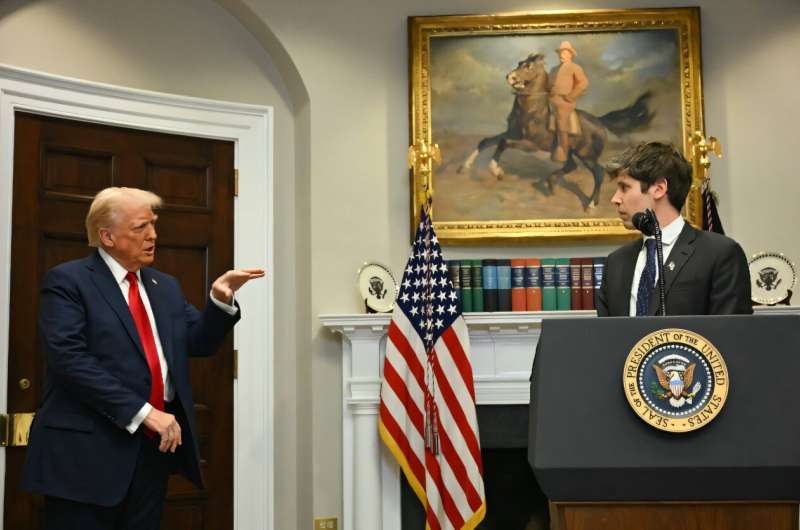Big Tech Champions Trump’s Deregulation Push for AI
Las Vegas, March 21, 2025 — Major technology firms are throwing their weight behind the Trump administration’s push to relax regulations on artificial intelligence, arguing that it’s essential for the U.S. to maintain its competitive edge against China.

Initial reactions to generative AI’s rapid advancement prompted governments to consider guardrails. These were quickly followed up by major tech companies integrating them into their products. Since taking office in January, the Trump administration has pivoted towards accelerating AI development, sidelining concerns about the technology’s potential pitfalls.
“The AI future is not going to be won by hand-wringing about safety,” Vice President JD Vance told world leaders at a recent AI summit in Paris.
This message did not sit well with international partners, particularly Europe, which had established the EU AI Act as a new benchmark for controlling the technology. However, faced with America’s new direction, European officials are adjusting their messaging toward investment and innovation rather than focusing on safety.
“We’re going to see a significant pullback in terms of the regulatory efforts… worldwide,” explained David Danks, a professor of data science and philosophy at the University of California San Diego. “That certainly has been signaled here in the United States, but we’re also seeing it in Europe.”
Tech companies are seizing this regulatory retreat, seeking the freedom to develop AI technologies they claim were overly constrained under the Biden administration. One of Trump’s first executive actions was dismantling Biden’s policies, which had proposed modest guardrails for powerful AI models.
“It’s clear that we’re taking a step back from that idea that there’s going to be a coherent overall approach to AI regulation,” noted Karen Silverman, CEO of the AI advisory firm Cantellus Group.
The Trump administration has invited industry leaders to share their policy visions, emphasizing that the U.S. must maintain its position as the “undeniable leader in AI technology” with minimal investor constraints. The industry submissions will shape the White House’s AI action plan, expected this summer.
The request has yielded predictable responses from major players, with a common theme: China represents an existential threat that can only be addressed by giving companies freedom from regulations.
OpenAI’s submission probably goes the furthest in its contrast with China, pointing to DeepSeek, a Chinese-developed generative AI model created at a fraction of American development costs, to emphasize the competitive threat. According to OpenAI, American AI development should be “protected from both autocratic powers that would take people’s freedoms away, and layers of laws and bureaucracy that would prevent our realizing them.”
For AI analyst Zvi Mowshowitz, OpenAI’s “goal is to have the federal government not only not regulate AI,” but also ban individual states from doing so.
Currently engaged in litigation with the New York Times over the use of its content for training, OpenAI also argues that restricting access to online data would concede the AI race to China.
“Without fair use access to copyrighted material…America loses, as does the success of democratic AI,” OpenAI said.
Another response, submitted by a group of Hollywood celebrities—including Ben Stiller and Cynthia Erivo—rejected the notion, reflecting the film and television industry’s contentious relationship with the technology.
Meta, in its response, touted its open Llama AI model as part of the fight for American technological superiority. “Open source models are essential for the US to win the AI race against China and ensure American AI dominance,” the company stated. CEO Mark Zuckerberg has even advocated for retaliatory tariffs against European regulatory efforts.
Google’s input focused on infrastructure investment for AI’s substantial energy requirements. Like its peers, Google also opposes state-by-state regulations in the U.S., which it claims would undermine America’s technological leadership.
Despite the push for minimal oversight, industry observers caution that generative AI carries inherent risks, regardless of government regulation.
“Bad press is universal, and if your technology leads to really bad outcomes, you’re going to get raked over the public relations coals,” warned Danks. Companies have no choice but to mitigate the dangers, he added.


